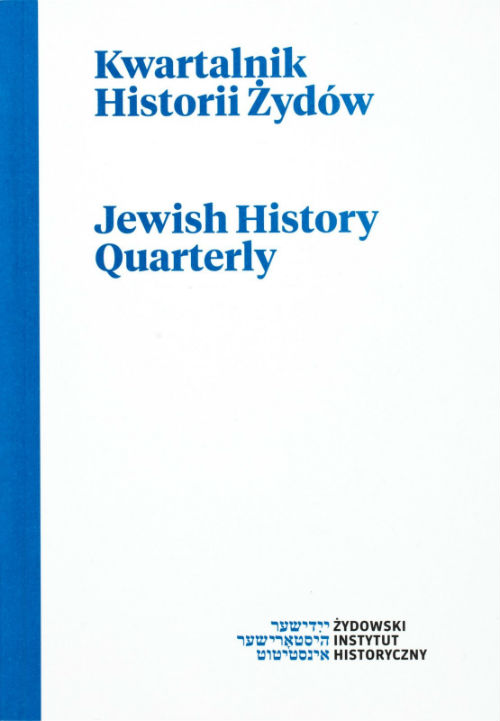Powieść Juliana Ursyna Niemcewicza "Powóz złamany" - głos w sprawie reformy Żydów polskich
Julian Ursyn Niemcewicz's Novel "Broken-down Carriage" - a Voice for a Reform of Polish Jews
Author(s): Anna Michałowska-MycielskaSubject(s): History
Published by: Żydowski Instytut Historyczny
Keywords: Julian Ursyn Niemcewicz; Jewish Enlightenment; reform of the Jews
Summary/Abstract: The article deals with a little known novel by Julian Ursyn Niemcewicz (1758-1841), which remains in manuscript form, Powóz złamany {Broken-down carriage], written in the years 1815-1816. The novel is composed of the tales of four travellers, a German, a Frenchman, a Pole and a Jew, forces by a defect of the carriage in which they rode to retire to a roadside inn. The tale of a Volhynia Jew, one Moszek Lejbowicz, presents the evolution of a “traditional” Jew (having traditional education and dealing with inn-keeping and commerce) into an enlightened Jew. The turning point in Moszek’s biography was a trip to Germany, where he met enlightened Jews and learned about the changes that occurred in the situation of the Jews there. After returning to Poland, Moszek took up useful work and established a faience factory. He obtained government aid for his actions. In his novel, Niemcewicz advocates a reform of the Jews patterned on the German model, seeking to persuade the Jews to abandon the traditional style of life and of making a living and transform them into useful citizens: entrepreneurs, craftsmen or farmers.
Journal: Kwartalnik Historii Żydów
- Issue Year: 217/2006
- Issue No: 01
- Page Range: 5-12
- Page Count: 8
- Language: Polish

